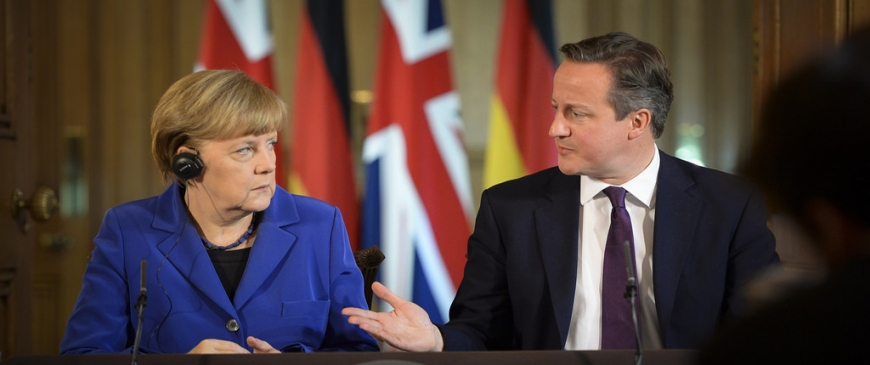
Brexit would be a challenge for Berlin
For the first time in EU history, one country is the clear leader. But Germany’s authority faces many challenges - and the departure of the UK would make it even harder to manage this fissiparous club. Brexit would leave the EU a less congenial place for many Germans while also heightening resentment of Berlin’s power elsewhere on the continent.
Germany’s role in the EU has expanded to fill a vacuum left by others. France has problems with its economy and, in François Hollande, a president who is unassertive at European summits. The British are disengaged while they ponder whether to stay or go. Italy has a dynamic leader in Matteo Renzi, but until its economy perks up he will lack clout in EU meetings. The European Commission has grown weaker, partly because the governments do not want it to lead. Germany, meanwhile, has a successful economy and a leader, in Angela Merkel, whose skills and experience give her a big advantage over her peers.
As the eurozone’s main creditor, Berlin has dominated the handling of the euro crisis. But it is struggling to enforce the budgetary limits that many Germans believe the currency union requires. France and Spain have breached those rules and, to Germany’s chagrin, the commission is quietly supportive of a softer fiscal policy. Ms Merkel has also led the response on Ukraine, cajoling several reluctant EU governments to back sanctions against Russia. But the longer the conflict endures, the harder it will be for her to persuade them to roll over sanctions.
The biggest challenges to German authority, however, relate to the refugee crisis. Last September Ms Merkel used a qualified majority vote to force unwilling central Europeans to accept a quota scheme for relocating refugees. German diplomats told some governments that they had to accept quotas or risk losing EU regional funds. These governments are still smarting over what they perceive as German bullying. The row has heightened tension between Warsaw and Berlin. Poland’s new Law and Justice government, unlike its predecessor, is instinctively suspicious of Germany and its dominant role in the EU.
In recent months Ms Merkel’s deal with Turkey over refugees — Ankara has promised to stem the flow in return for various benefits — has sparked complaints about German unilateralism. Most governments support the substance of the deal but are annoyed that Ms Merkel negotiated without consulting them and that she sidelined the EU institutions. “She has spent much of her European political capital on the refugee crisis,” admits one German official.
The Germans are learning that if you lead an organisation, everyone will criticise you, sometimes unfairly (the Americans know this well). This criticism, alongside the fear that the southern member-states want to establish a eurozone “transfer union” with Germany’s money, has nourished the growth of German Euroscepticism in recent years.
A British vote to leave the EU would energise the Eurosceptic Alternative for Germany, and that would in turn erode support for Ms Merkel’s Christian Democrats. In addition, since the UK is the leading advocate of free trade and the single market, many in Germany worry about Europe’s economic philosophy drifting in a statist, protectionist and French direction. Furthermore, Brexit would deprive Germany of a key ally in trying to limit EU spending.
It is true that Britain’s departure from the union would not directly affect the balance of power in the eurozone. Indirectly, however, the French, Italians and others fear it would make it easier for Germany to impose tough policies of austerity on fellow eurozone states. As for the wider EU, Paris, Rome and Warsaw fear Brexit would give Berlin an even more preponderant role than it enjoys already.
Post-Brexit, Germany would find it harder to tread the fine line between giving Europe the leadership it clearly needs and being sensitive to its partners’ concerns. If Germany fails to listen to them, the countries that resent its power may choose to ally against it.
The writer is director of the Centre for European Reform.
